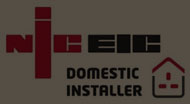Health & Safety
Planned maintenance also enables your business to conform with the relevant parts of applicable Health and Safety policies, making certain your business is both legally and technically compliant.
Other facilities include:
- Electrical asset management
- Visual inspection
- Electrical tests
- Portable appliance testing
The Health and Safety Executive states that 25% of all reportable electrical accidents involve portable appliances. Legal responsibility is placed on both employers and employees to comply with the provisions of the Electricity at Work Regulations, and to take reasonably practical steps to make sure no danger results from such equipment. Click here for further information on commercial electrical regulations.
Atlas Electrical will assess the level of risk of each appliance and prepare testing schedules to assist its clients in meeting their obligations.
Whether you are a single commercial outlet or large retail chain, an independent public house or restaurant or a multinational hotel chain, Atlas Electrical can tailor an electrical solution specifically for your needs.
Regulations
- Electricity at Work Regulations 1989
- Management of Health and Safety at Work Regulations 1992
- Waste Electrical and Electronic Equipment (W.E.E.E.) directive
- The Electricity Safety, Quality and Continuity Regulations 2002
BS 7671 Wiring Regulations
- BS 5266 The Code Of Practice For Emergency Lighting
- Control of Asbestos at Work Regulations
Electricity at Work Regulations 1989
The regulations impose duties on employers, employees and the self employed, and embraces all work that could lead to electrical danger. Atlas Electrical will carry out condition surveys, prepare drawings and maintain records ensuring that every practical effort has been made to ensure compliance.
Management of Health and Safety at Work Regulations 1992
This regulation makes explicit what employers are required to do to comply and covers the requirements to maintain the safe use of electrical equipment and systems. Atlas Electrical maintains a watching brief over legislative changes as they apply to employers, obligations, in order that, the work they carry out is fully compliant with the most current regulations.
Waste Electrical and Electronic Equipment (W.E.E.E.) Directive
Millions of fluorescent lighting tubes are sent to landfill sites each year. Under the Waste Electrical and Electronic Equipment Directive, this will change.
The WEEE Directive forces commercial building operators to change their method of lamp disposal and switch to recycling.
Mercury, sodium and other rare metals that make up part of the lamp structure have seen lamps reclassified as hazardous waste. Therefore it will no longer be acceptable to deposit lamps in landfill sites.
The WEEE Directive will make it mandatory to decontaminate and recycle tubes and will place more responsibility on building operators to fully audit and organise the safe disposal of the lamps.
Building managers will have responsibility to ensure that old lamps are handled in accordance with the Directive. By appointing Atlas Electrical to conduct bulk re-lamping or lighting maintenance programmes, you are able to verify that the company is compliant.
The Electricity Safety, Quality and Continuity Regulations 2002
The Electricity Safety Quality And Continuity Regulations 2002 came into force on the 31st January 2003 and replaced the Electricity Supply Regulations 1998 (as amended).
The ESQCR specify safety standards, which are aimed at protecting the general public and consumers from danger. In addition, the regulations specify power quality and supply continuity requirements to ensure an efficient and economic electricity supply service to consumers.
BS 7671 Wiring Regulations
The Institution of Engineering and Technology prepares regulations for the safety of electrical installations for buildings, the IEE Wiring Regulations (BS 7671) now having become the standard for the UK and many other countries. It also recommends internationally the requirements for ships and offshore installations.
Atlas Electrical will ensure that your electrical installation conforms to the latest safety guidelines from the British Standards Institution (BSI) and the Institution of Electrical Engineers (IEC) as codified premises in BS 7671, Requirements for Electrical Installations. This is now even more important than ever as changes to the Building Regulations in 2005 have become mandatory for domestic installations.
BS 5266 The Code Of Practice For Emergency Lighting
Atlas Electrical will assist you by installing and maintaining emergency lighting systems in accordance with BS 5266, the Code of Practice for emergency lighting of premises. Emergency lighting is provided to ensure minimum levels of light are available to ensure the safety of individuals in the event of the failure of the normal lighting system and is powered from a source independent to that of the normal lighting system. Not only are there specialist requirements for proper design of installations but obligations on employers to ensure that installations are properly maintained and tested.
Control of Asbestos at Work Regulations
Working with a specialist advisor, Atlas Electrical can ensure that you are given the very best advice in fulfilling employer and building operators, duty to manage asbestos in non – domestic premises. Where no asbestos register exists Atlas Electrical can facilitate an assessment of work which exposes employees to asbestos.






